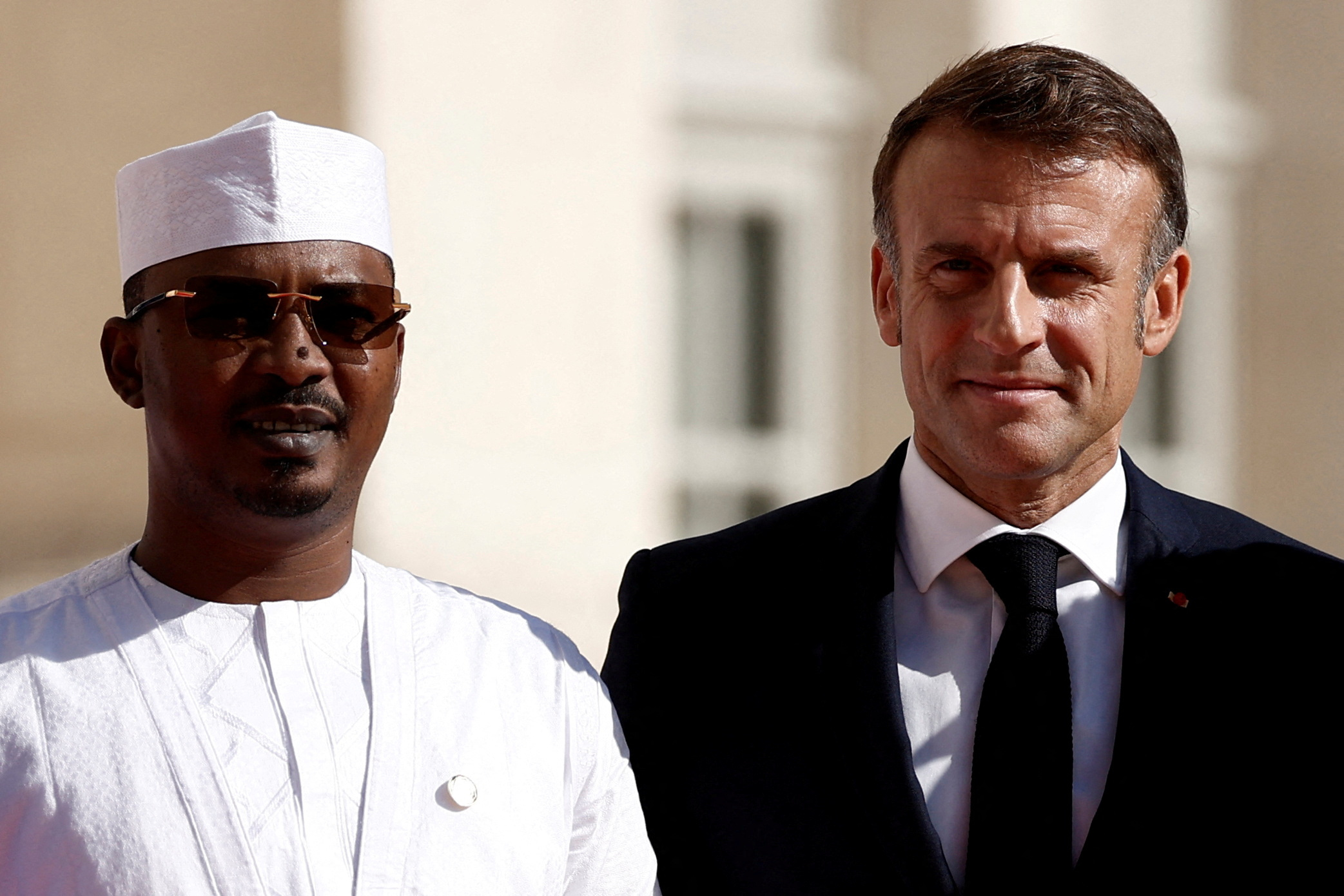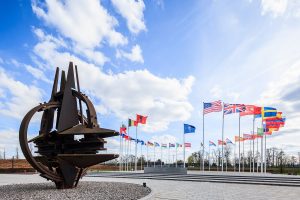Chad, a longtime Western counterterrorism ally in central Africa, said it is ending military ties with France, the latest country in the troubled Sahel region to break with its former colonial power amid rising anti-French sentiment.
The surprise announcement came in the final hours of Chad’s Republic Day celebrations on Thursday, and just a day after France’s foreign minister, Jean-Noël Barrot, met his Chadian counterpart in the capital N’Djamena. It will likely result in the exit of some 1,000 French troops currently stationed in the country, who have been supporting the Chadian military with training, logistics, aerial surveillance and intelligence in its fight against jihadists and various rebel groups.
“This decision, which followed an in-depth analysis, marks a historic turning point,” Chad’s foreign minister, Abderaman Koulamallah, said in a statement posted on his ministry’s Facebook account just after 11 p.m. local time Thursday. “Indeed, 66 years after the proclamation of the Republic of Chad, it is time for Chad to affirm its total and complete sovereignty and redefine its strategic partnerships in line with national priorities.”
France’s foreign ministry didn’t respond to requests for comment.
Chad, like other former French colonies in the region , has seen protests against France’s continued presence. In May, hundreds of demonstrators marched through N’Djamena and other towns, accusing Paris of supporting the regime of President Mahamat Déby. Protesters vandalized gas stations operated by TotalEnergies , a French energy company, and burned French flags before being dispersed by Chadian police.
French President Emmanuel Macron earlier this year announced an overhaul of France’s military posture in Africa. That plan foresaw a drawdown of troops in Senegal, Gabon, the Ivory Coast and Chad and the possible transfer of some military bases to local authorities, according to French defense officials.
But France aimed to maintain a lower-profile military presence across the region, including its base near N’Djamena to keep direct access to the airport, the officials said.
Over the past two years, military juntas in Mali, Burkina Faso and Niger have kicked out French troops and instead forged alliances with Moscow, including by hiring Russian mercenaries to train or, in the case of Mali, support their own soldiers in combat.
Chadian troops have been more successful than other countries in the Sahel—the semiarid region south of the Sahara—at keeping at bay a sprawling jihadist insurgency. But in recent weeks they have suffered several deadly attacks by suspected fighters from Boko Haram, an Islamist group.
Déby came to power in April 2021, after his father, Idriss Déby Itno who had ruled the country with an iron fist for 30 years, was killed in a battle with a rebel group. The transition violated the line of succession laid out in the Chadian constitution and the regime was criticized by international rights groups for the violent repression of pro-democracy protesters in October 2022.
Still, both France and the U.S. had been treading carefully in their relations with Chad , hoping to stop Déby from also moving closer into Russia’s orbit. In recent months, the Pentagon’s Africa Command had been in talks with Chadian officials over the return of a small contingent of American troops who had been ordered out of the country by a Chadian air-force general earlier this year.
Before the rupture in U.S.-Chadian military relations earlier this year, Chad’s 11,000-man counterterrorism force trained with U.S. Green Berets and, previously, received American pickup trucks and body armor.
A senior Chadian military officer said Friday that he was still hoping for U.S. support on training and logistics. “However, it is up to the diplomats of the two countries to determine to what extent to put in place this cooperation to help us confront terrorists,” he said.
Talks are still under way over the possible return of U.S. Special Forces, “which could take place in the near future,” said a second Chadian officer.
Chad has been sending mixed messages about its relationship with Russia. President Déby met Russian President Vladimir Putin in Moscow in January and Foreign Minister Sergei Lavrov visited N’Djamena in June. However, Chadian authorities in September detained Maxim Shugaley, a Russian political operator with ties to the Wagner Group , and expelled him from the country earlier this month, according to Russian state media.
Déby has also forged a close relationship with the United Arab Emirates, and allowed the Gulf monarchy to ship military supplies to the paramilitary-turned-rebel Rapid Support Forces in Sudan via Chadian territory, The Wall Street Journal has previously reported .
Chadian officials told their French counterparts Friday that they had been surprised by the foreign minister’s announcement, a European official said. France over the years had used its forces to support the regime of Déby Itno, including helping Chadian troops expel rebels who had entered N’Djamena in 2008. In 2019, French jet fighters bombed a heavily armed column of rebels who had entered northern Chad from Libya.
Remadji Hoinathy, a N’Djamena-based analyst with the Institute for Security Studies, said Déby’s government may have decided that a reduced French presence in Chad no longer fitted its needs and used the surprise rupture to gain public support.
“Chad may have accelerated this process [of ending military ties], using this very symbolic date of Nov. 28, to break the agreement and present it to the Chadian public as an act of sovereignty that we know will be very popular at this moment with young people in francophone Africa,” he said.
Write to Gabriele Steinhauser at Gabriele.Steinhauser@wsj.com and Benoit Faucon at benoit.faucon@wsj.com



